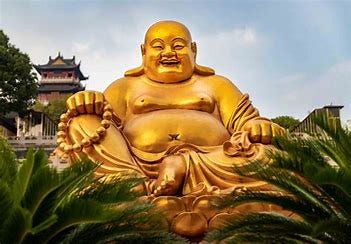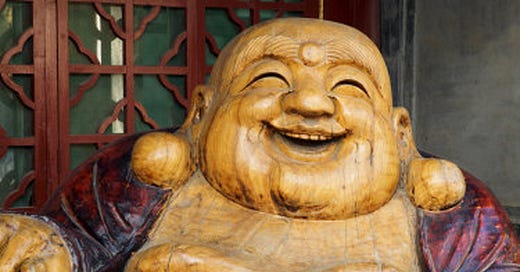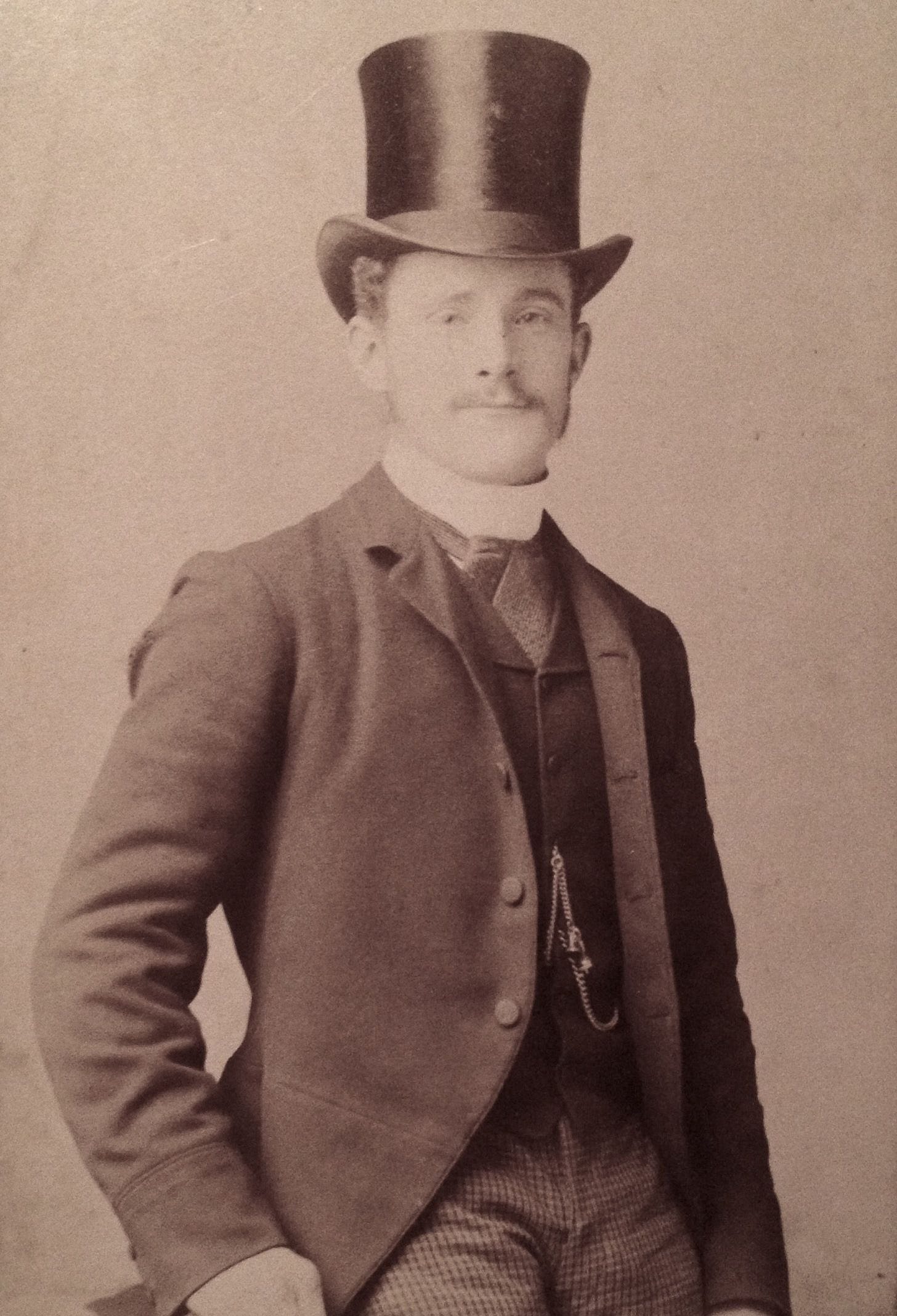Dour Piety
There once was a distinguished Victorian woman who threw a party. A fancy one. The sort of party where you’re expected to know the difference between the half dozen forks around your plate. All sorts of wonderful people showed up. Constables. Politicians. Vicars. Minor nobility whose blood had been so mingled with that of commoners that its blue had started to purple. The ladies had marvelous dresses. The poofy sort that nobody wears anymore. And the men wore top hats nearly a foot high and the tails of their coats were ostentatiously long. The conversation was lively and gay and everyone was getting along marvelously. As was the custom before television and phones, when one’s only entertainment was other people, they tended to alternate between frivolous topics like the weather and so on, and deeply serious things that everyone was expected to furrow their brows about. In those days, conversation was more structured. The host would stand and propose a toast and then tell the party what the next topic of discussion would be. The Hostess had already made a grand evening of it by guiding the conversation along such lines as classical composers, Shakespeare, the colonies in India, and many other fine things. But now the evening was winding down and before desert she had it in her mind to discuss religion. Not in a stuffy way you understand. But in a light, airy sort of way. She hoped to draw out of her guests their ideas regarding the afterlife and spirits and (she secretly hoped) to hear a few ghost stories. So it was that The Hostess stood up and clanged her glass with her spoon.
“Dear ladies and fine gentlemen. You have all been so wonderful tonight and I again give you many thanks for your company. Before we have dessert however, I should dearly like to know your thoughts about the afterlife. What happens to us, really, when we die. I know that I for one have seen not a few strange happenings about the manor in the wee hours of the morning. So please, regale me with your thoughts. Let us start with you Lord Dartmorth.”
And so it happened that they went round the large table, one at a time, asking each man and woman present what they believed became of them when they breathed their last. Ostensibly of course, all present were Anglicans and so there were certain bounds to this conversation that were not expected to be crossed. Many had however imbibed the philosophies of the East and so the conversation was less cut and dry than might have been expected. The teachings of yogis came up, and ideas about reincarnation, and one particularly plump woman even brought up the Bhagavad Gita. Eventually however they got round to Sir Samuel, a man now in his golden years who had achieved some measure of notoriety in the Pastry War with Mexico, a fact that had since laden him with the regrettable nickname of Sombrero Sam. Of the lot of them Sam was the most devout and pious. He and his wife attended Church every Sunday and he spent the first hours of each morning meticulously reading through The Book of Common Prayer.
“And you Samuel,” The Hostess prompted when at last it was his turn. “What do you think awaits you when you die?”
With a creak of his chair and almost as much from his knees, Sir Samuel stood and cleared his throat, a rather grim look upon his face. He did not, truth be told, much enjoy the subject. Probably that was because he was the oldest in attendance. Death for him was less hypothetical.
“My dear Lady,” Sam began. “I am quite certain that when I die I shall be welcomed into the loving embrace of God and the host of glorious angels to enjoy perpetual bliss and happiness for all eternity. But by heavens, do we have to talk about such a dreary subject?”
Right.
Wrestling with God
In a former life, back when I was a sumo wrestler (yes, that’s real), I had a friend named Joel. He was a thick fellow, stocky, and now just the slightest bit chubby. He had not begun his sumo career as a fat person but by the time I met him, years of sedentary truck driving had begun to turn him that way. International sumo you see, unlike the professional game in Japan, has weight classes. It helps to be massive but it isn’t strictly required. Smaller guys like Joel still had somewhat of a chance. He stood about 5’10, had a full beard and broad shoulders, and was as jovial and merry as the Ghost of Christmas Past. Sumo wrestlers are like that as a rule. Happy.
They’re a fun bunch.
The first proper wrestler I ever met, a former pro in Japan who was now schlepping it up with the rest of us on the international scene, was likewise nigh on ridiculous in his mirth. When we met for the first time he was standing in his underwear in the middle of the street in downtown Los Angeles at about 10 p.m., holding an enormous bottle of wine and screaming at the sky. Inarticulate ejaculations you understand. Just… “AAAAHHAHAHAHH!” followed by, maybe, “BWHHHAHAHAHHAH!!!”
That sort of thing.
I didn’t understand it. He was Mongolian.
We spent the evening with a number of others in a Korean karaoke bar where I watched a bunch of Asians try to sing “Take On Me” by A-ha. The wrestler’s fiancée was there, and her primary job appeared to be trying to ensure that her soon to be husband did not drink too much. Frankly, if this were possible she was very much failing at it. It might not have been possible though. He was incredibly large. As we ate and everyone told stories one of the other wrestlers mentioned how back in Mongolia he’d stabbed a man. Everybody laughed.
They were all Buddhists.
Followers of the Laughing Buddha.

I have no recollection of how late we stayed out. I’ve never been a drinker so I can’t blame my poor memory on alcohol but I think the sheer exhaustion of the evening was enough to make me forget the time. And we had to get up so early! I have no way to prove I was involved as I was cropped out of the finished product, but ESPN wanted us there at 7:30 for a photoshoot. If I slept three hours that night I’d be surprised. Yet, come the time of the tournament everyone was there, bright and sunny, slapping their thighs on the warm-up mat and telling jokes. One fellow was going through a divorce, another’s brother had just died, at least three of those present talked openly of their substance addictions. It was a gathering of people with problems, to say the least. Perhaps, given the nature of the thing, that’s not overly surprising. Then the tournament started and we each took turns beating each other up. After the trophies were handed out, we all shook hands.
I don’t think a smile left anyone’s face the whole time.
That’s not unusual. As you might imagine, Sumo is a sport in which Ivy League Alums are sorely underrepresented and it is always the underclasses of society which are the most humorous. Scant few jokes are told in mansions you know, and comedians, if they are any good, almost always come from rough backgrounds. When life is hard and unpredictable you’ve got no weapon against it but your sense of humor. Your ability to laugh at the horror. Comedy is an adaptation. It’s a survival skill.
To be funny you have to be at least a little bit broken.
And this, actually, is what kept Joel from converting.
When our conversations turned religious, as they often did, Joel would always firmly cling to his agnosticism. Sure, he thought there was probably some sort of God character floating around out there somewhere, yes. But he wasn’t confident enough in it to “become” anything. You know, he wasn’t going to commit to this or that system of religious thought. I would always press him on why and found, frequently, that his answers were wholly unsatisfactory. Not just to me, but to himself. He didn’t know why he had such an aversion to Christianity. He just did. One day however his eyes lit up as though a sudden clarity about his own feelings had been given to him.
“He doesn’t laugh.”
Joel said this to me from behind a bowl of chili.
“What?”
I was taken by surprise. We’d been discussing the Iron Man movie. It was 2013.
“Jesus,” Joel said. “I think that’s why I’m not a Christian. Jesus doesn’t laugh.” Joel only ate a little of his chili. It was the off season and he was trying to get back in shape.
The Crying Christ
In my life I’ve been all over America and have visited churches all over America too. Tiny chapels in the grasslands of South Dakota, old cathedrals erected by the Spanish in Miami. I’ve been to Baptist churches and Lutheran ones. Catholic Churches and the temples of the Greek Orthodox. I’ve visited the Methodists and the Episcopalians. I even, for a brief time, attended The Religious Society of Friends, better known as The Quakers. In all that I’ve found that Joel was right. Search all you want, from Maine to Mexico… you’ll almost never find a depiction of Jesus happy.
That’s not 100% true I suppose. Children’s books are the exception. Picture-bibles made for babies, that kind of thing. Usually in depictions of Jesus for children they will indeed give him a smile. But it’s almost as though you’re supposed to grow out of needing that by the time you’re an adult. For the adult versions of Jesus are many things, but none of them mirthful. No, adult versions of Jesus are instead mostly very serious, or very sorrowful, or very dead, or very much in pain and seldom is even The Resurrected Christ drawn happy, which you’d think might be the default, having just conquered Death and all. When you take all that into account is it any wonder that so many find Christianity to be a bit ghastly? On the surface it can appear like a religion whose God is just into torture porn and being sad. In fact, if you were a tribesman in the Amazon or the Congo and had never encountered Christianity before, I doubt walking into a church would give you any sort of feeling of comfort. I don’t know that you’d get the impression that Life was good. All the art, the architecture, the high vaulted ceilings and gold vessels… it might give you the impression of Greatness or Majesty or that God was very Awesome and worthy of Respect. Yes.
But I doubt it would give you the impression that He’s happy.
And the question then, I suppose, is… is that true?
Is God happy?
Is the Christian depiction of Jesus specifically, but also God more generally… accurate? Is God, the highest that there is, the ultimate, the Father of All… is He truly a somber and sad figure whose default state is Upset?
Because if so, that’s rather depressing. Isn’t it? I mean, who wants to go to Heaven to be with a God like that? Don’t we want God to be happy? If for no other reason than because we want to be happy too? And I have noticed that most people, most Christians at any rate, become very sour and unhappy people if they get too zealous. Too devout. At worst they become as serious and stern as the depictions of their God hanging in their church. At best they develop that pensive look of consternation that Western art always seems to plaster on its saints. In other words they become like Lord Samuel, assured of their place in Blessed Heaven… and not overly excited about it. And, when you think on it, why would they be? They’ve never seen their God happy and so they imagine Heaven as… well I suppose an existence better than Hellfire, but not by much. They’re looking forward to a boring existence. With a boring, sullen God. They see Heaven as just a church service that never ends, and how dreadfully awful would that be? Their reward for all their good works and all their faith, they think, is probably to just go and be a little weepy. Emotive. Lost in a sort of joyless automaton like worship for all eternity. A prisoner of a somber, serious Heaven. One that goes on forever.
And ever.
And…
ever.
No wonder some people find Hell almost tempting.
I mean Hell. HELL. Right? That’s where we imagine all the sexy people go. The people who have fun. You know, like Billy Joel said:
"And they say there's a heaven for those who will wait Some say it's better, but I say it ain't I'd rather laugh with the sinners than cry with the saints The sinners are much more fun" - Billy Joel, Only the Good Die Young
It’s not an uncommon sentiment.
And not one without it’s backing in the Bible if we’re honest. Afterall, the bible verse is “Jesus wept.” It’s not “Jesus laughed.”
I might be missing something from my memory, but as I recall nowhere in The Bible is God described as telling a joke or laughing. The one exception being that he will occasionally laugh at his enemies in a scoffing kind of way. Jesus himself received the title “Man of Sorrows”, which isn’t overly fun, and there’s nowhere in the four gospels any mention of Christ smiling. Maybe it’s no wonder then that the religion bearing his name turned out sort of dour.
Personally though, I think we’ve gotten it exactly backwards. And as much as I enjoy Scenes from an Italian Restaurant, I think Billy Joel was wrong. The sinners, actually, don’t have more fun.
Useless Adaptations
I said earlier that comedy is an adaptation, a survival skill, and I think that’s true of art more generally. Here of course I don’t mean making things. I don’t mean the art of the carpenter making a beautiful chair or the architect a pleasant home. Such things are artistic, certainly, but “Art”, in the way we normally use it, fundamentally refers to things which are useless. Typically it doesn’t refer to people being productive in a beautiful way.
So when I say art is a survival skill I’m speaking of the kind of thing I do here. Things like writing, painting, or making music. Things which don’t really have a practical purpose. I’ve argued this before with friends who won’t accept my definition, rejoining that their gardening or their surgery is every bit as artful as any other pursuit. I agree with them, but the point remains that their gardening feeds people. My writing feeds nobody, least of all me (become a paid subscriber by the way). This kind of art, the useless kind, is, like humor, an adaptation. A survival skill. And I will tell you right now that there has seldom been a good poet who was happy. Vincent Van Gogh cut off his own ear. Art… and least that which is any good… almost always comes from a place of pain. Pieces like Pachelbel's Canon or Bach’s Violin Sonata no. 3 (which sounds best on guitar btw) come from places of pain that are almost unimaginable. Well adjusted people do not become artists.
Nor do they become comedians.
Keep reading with a 7-day free trial
Subscribe to Holy is He Who Wrestles to keep reading this post and get 7 days of free access to the full post archives.






